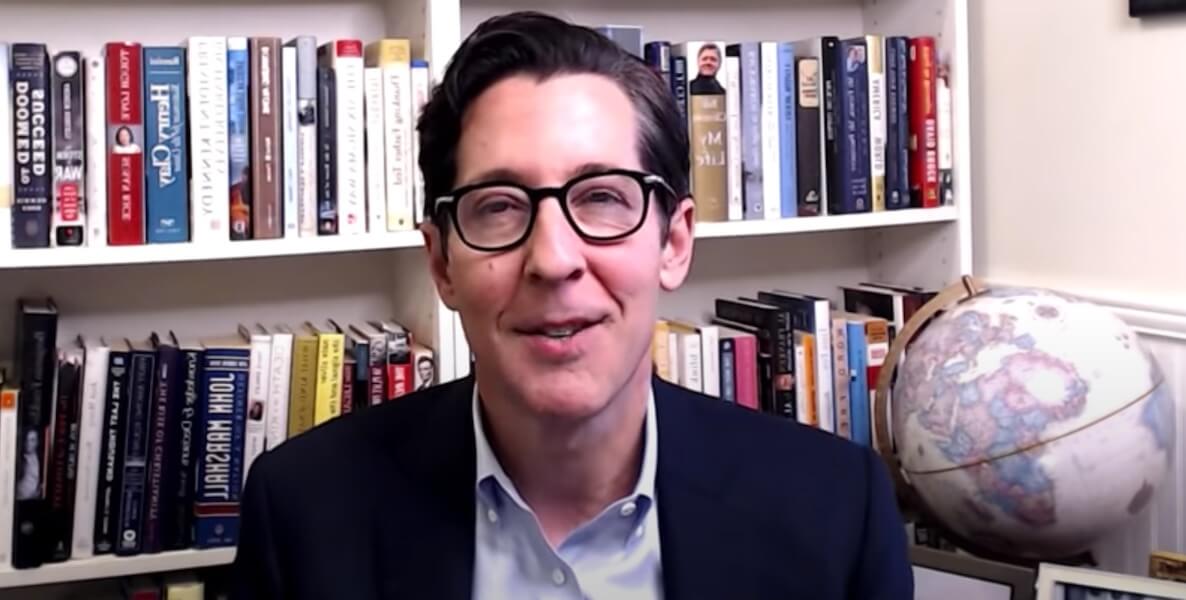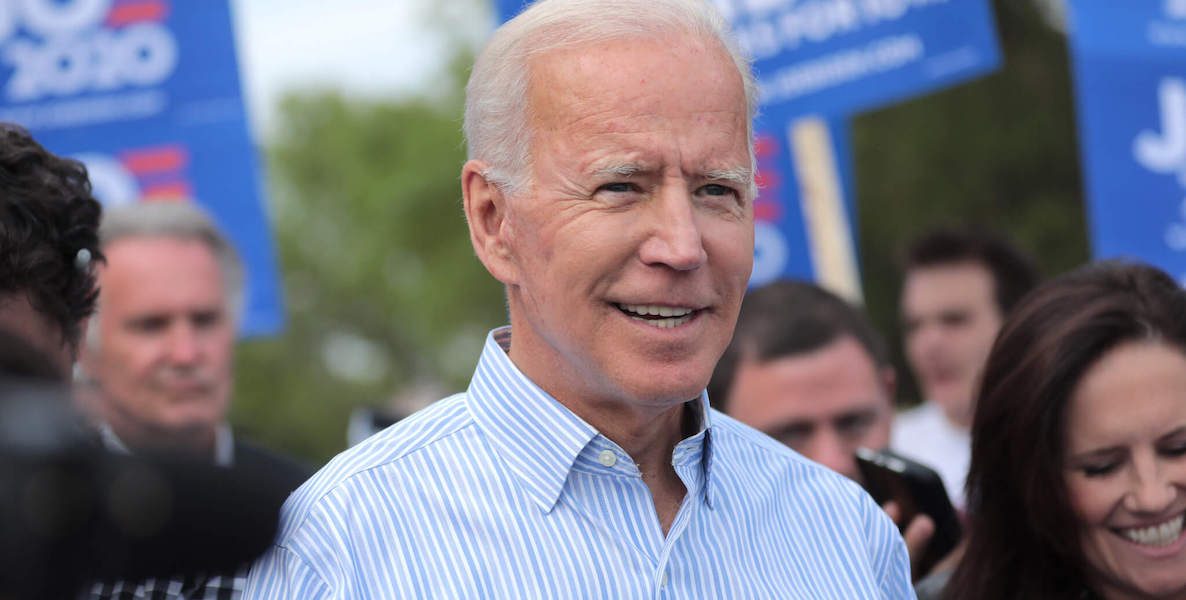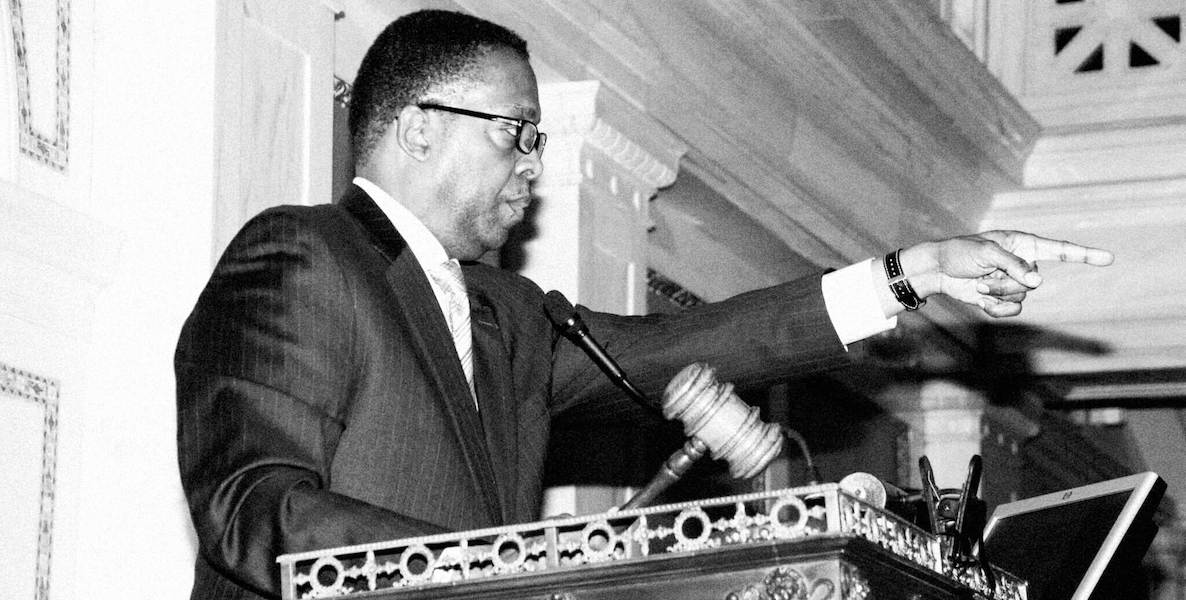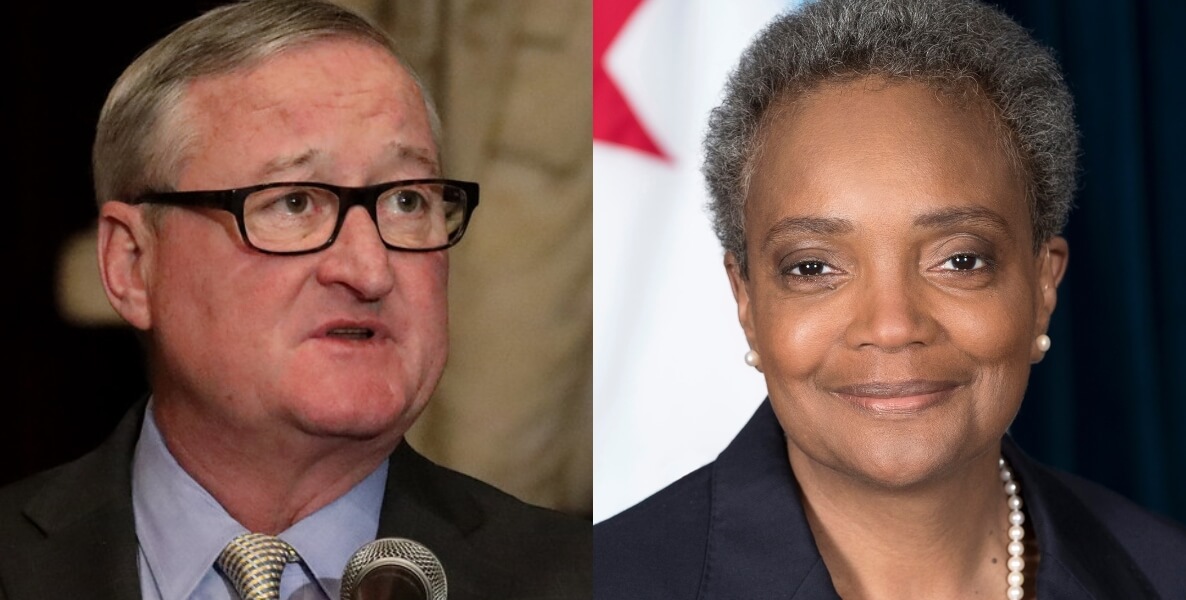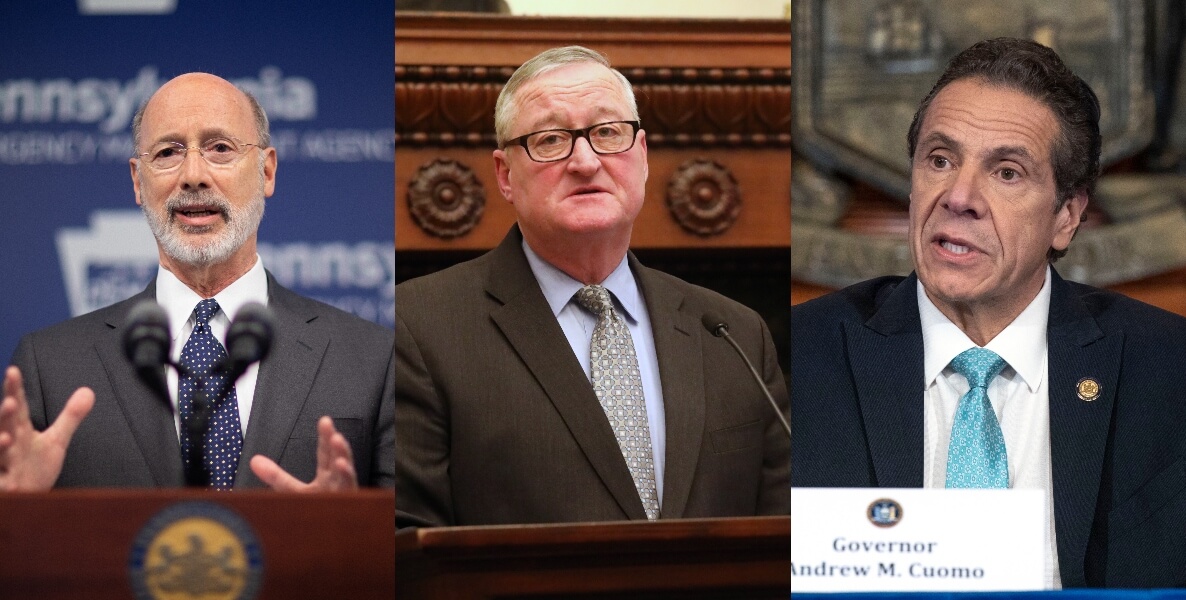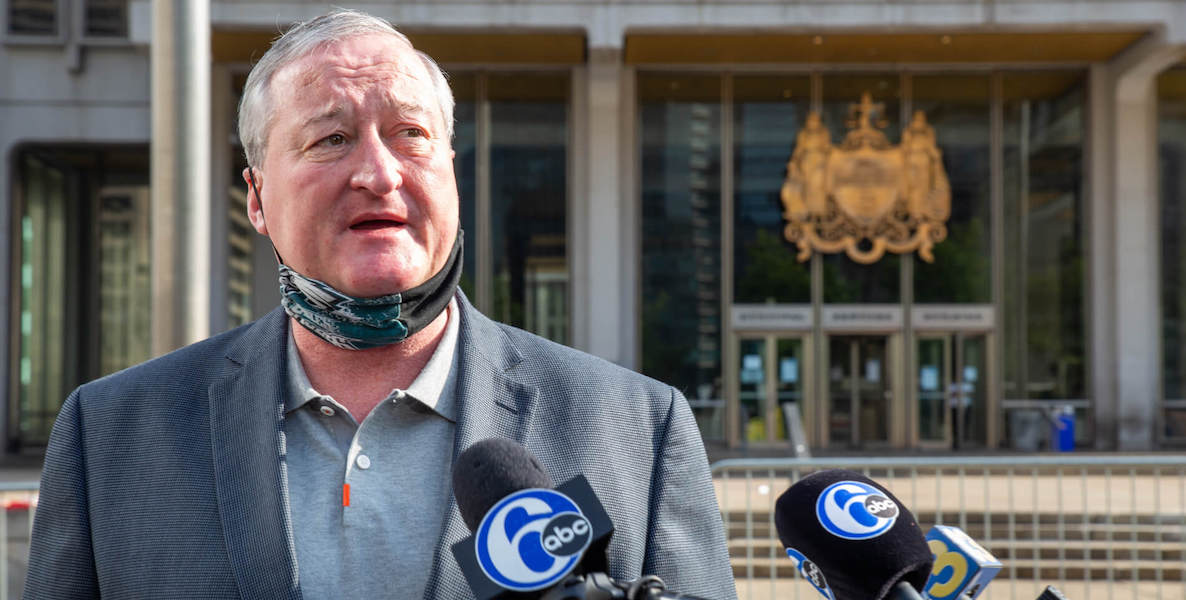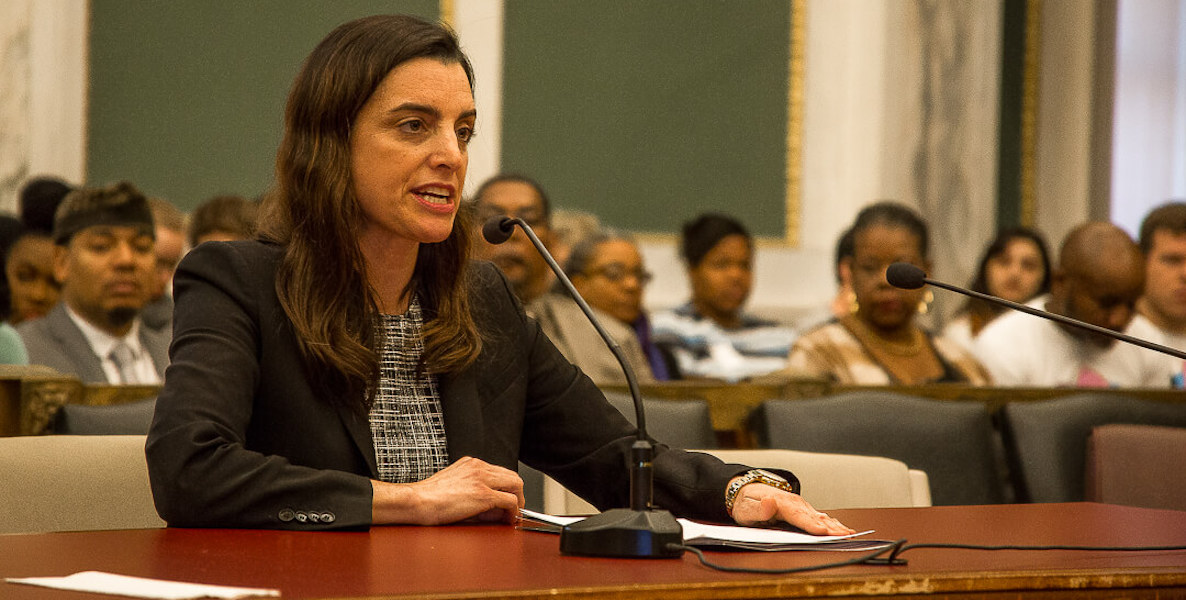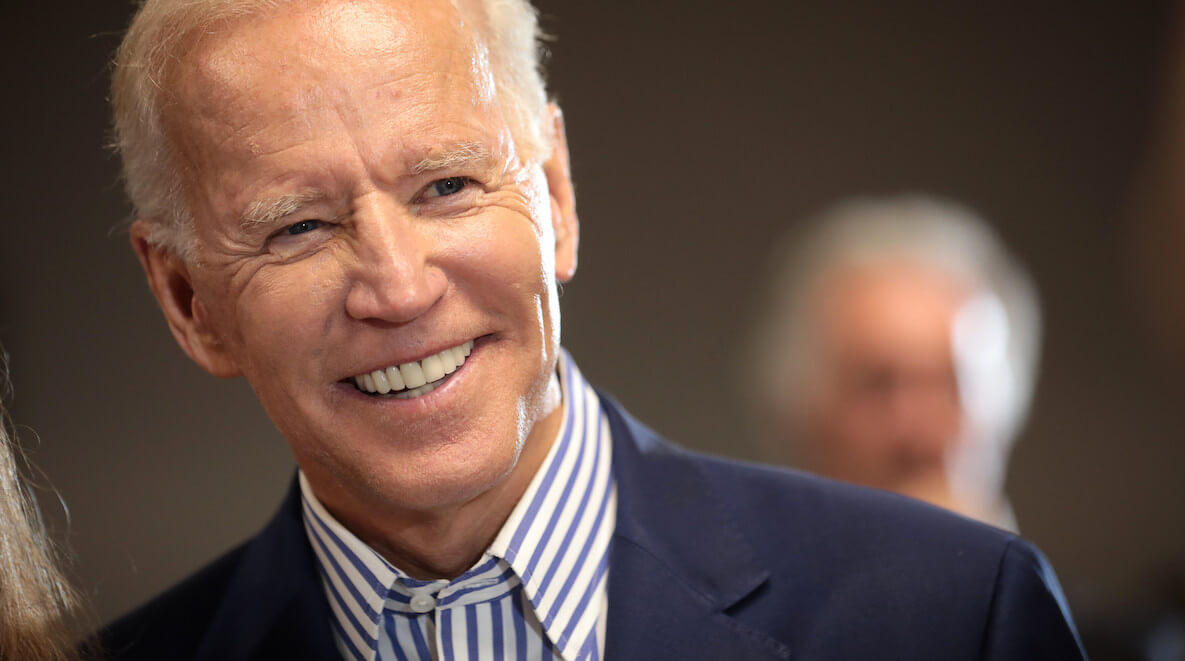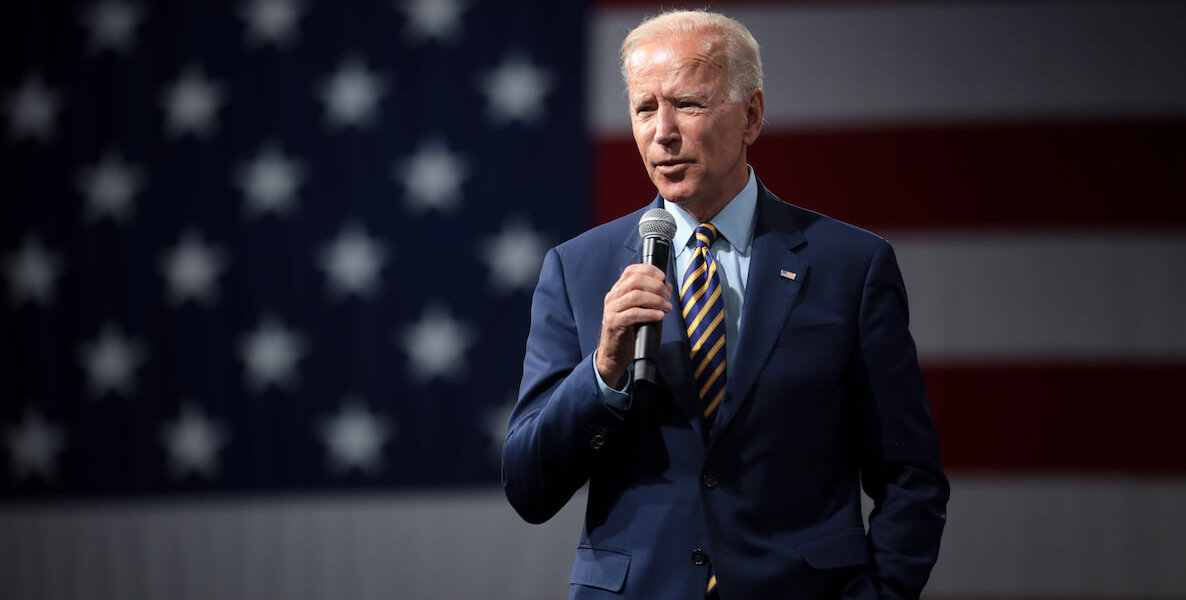![]() In March, Delaware Rabbi Michael Beals turned a long-ago interaction with Joe Biden into a meditation on what America needs at this moment: a mensch, Yiddish for “person of integrity and honor.” More than ever, Beals argued, we need to be driven by the menschkeit philosophy, a selfless, innate compulsion for doing the right and decent thing.
In March, Delaware Rabbi Michael Beals turned a long-ago interaction with Joe Biden into a meditation on what America needs at this moment: a mensch, Yiddish for “person of integrity and honor.” More than ever, Beals argued, we need to be driven by the menschkeit philosophy, a selfless, innate compulsion for doing the right and decent thing.
Beals has served Congregation Beth Shalom, in Wilmington, Delaware, for nearly two decades. Early in his tenure, he found himself in the basement laundry room of an apartment building in a “woebegotten” area conducting a shiva—the Jewish rite of mourning—for an elderly woman who had passed away.
There, in the back of the room, was Delaware’s senior senator, Joe Biden, quietly paying his respects to a woman who had given his campaign $18 every time he ran for public office—a sum that corresponds to the Jewish tradition of chai, or life. “Being a mensch is non-transactional,” Beals told me of Biden’s presence in that room that day. “There’s no quid pro quo for being decent and good.”
“Our current president, if given a second term, wasn’t going to be a reconciler. But that’s who Joe Biden is, to his very core,” says Rabbi Beals.
Well, it’s eight months later and that mensch is the president-elect. I caught up earlier this week with Rabbi Beals and what follows is an edited and condensed version of our conversation.
Larry Platt: First, how are you feeling about the state of the world, now? Are you optimistic?
Rabbi Beals: Oh my God, so optimistic! Our current president, if given a second term, wasn’t going to be a reconciler. But that’s who Joe Biden is, to his very core.
![]() You know, we have a thing here called “The Delaware Way.” We’re such a small, dinky state, you have to engage both sides to get anything done. We’ve got this tradition where, after an election, opponents come together in horse-drawn carriages at the state hall in Dover for a “Bury the Hatchet” ceremony.
You know, we have a thing here called “The Delaware Way.” We’re such a small, dinky state, you have to engage both sides to get anything done. We’ve got this tradition where, after an election, opponents come together in horse-drawn carriages at the state hall in Dover for a “Bury the Hatchet” ceremony.
They literally bury a ceremonial hatchet together in the sand to signify the end of the election to promote reconciliation. That’s what America needs and there’s no one better for that moment than Joe Biden.
LP: I’ve read about that tradition. It’s remarkable. But the divide is so wide, I wonder if mere symbolism will be enough to address it.
Rabbi Beals: Yes, that’s right, but did you watch the president-elect’s speech last Saturday night? It was right out of Psalm 133, verse 4: Behold, how good and how pleasant it is for brethren to dwell together in unity!
It felt like a Jewish speech. It was an expression of Jewish values: Welcome the stranger, embrace the marginalized, protect the environment. He’s a devout Catholic, and Catholicism has a lot of dogma in it. Jewishness doesn’t.
Judaism is more of a behaviorist religion. We ask, how do you treat others? We’ve talked about this before when it comes to the president-elect. What was that shiva story about? Being a mensch. That’s a Jewish value.
You’re right, though, there is a terrible divide out there. I feel it within the Jewish community. After your article last time, I received some really wicked, horrible emails from Jewish pro-Trumpers. I mean, terrible, hateful stuff. Some called me a turncoat and a self-hating Jew. Some Jews in Brooklyn who are very observant called me a “kapo”—a reference to the Jews who helped the Nazis.
LP: Oh my. What did you do?
Rabbi Beals: I asked myself, WWJD? Not, what would Jesus do, but what would Joe do? I’m serious. I responded to each one after taking a deep breath. And I thanked them for taking the time, and thanked them for their passion.
![]() And then I said there’s no way I’m going to change your mind on Joe Biden. And, I’ve been watching him do menschkeit for 16 years, so you’re not going to change mine. But I reminded them that, in our history, the second Temple was destroyed due to sinat chinam, or baseless hatred of one Jew against another. And I closed each email by touching on what we have in common, wishing them and theirs a happy Rosh Hashanah, good health, and great joy.
And then I said there’s no way I’m going to change your mind on Joe Biden. And, I’ve been watching him do menschkeit for 16 years, so you’re not going to change mine. But I reminded them that, in our history, the second Temple was destroyed due to sinat chinam, or baseless hatred of one Jew against another. And I closed each email by touching on what we have in common, wishing them and theirs a happy Rosh Hashanah, good health, and great joy.
Wouldn’t you know, I got some very nice notes back. Some begging forgiveness, saying they hadn’t realized that the terrible things they were saying were hateful. And I accepted those apologies with an open and glad heart. I didn’t seek to change their minds; I wanted to change the tone. To one of kindness.
“There is nothing like being listened to, and Joe Biden sat there and validated everyone in that room not by saying anything, but by being present and attentive,” says Rabbi Beals.
Well, that applies to the country now. Almost half the country didn’t get what they wanted. If you were on the winning side of this election, don’t drink the Kool-Aid—or, in my case, the Manischewitz wine—and be careful not to gloat.
LP: I keep thinking of those nasty notes you got from pro-Trump Jews. What were they so upset about?
Rabbi Beals: It has to do with how you do Jewish. Yes, Trump moved the embassy and struck peace deals between Israel and the United Arab Emirates, Bahrain and maybe Sudan. So it’s very transactional for some Jews. For others, if the world explodes due to climate change, what does moving the embassy matter? There’s a whole constellation of issues that matter, too, like the environment and social justice.
I like to tell the story of David Ben-Gurion, the first prime minister of Israel. He had a very bad back, yet he insisted on being driven everywhere in this beat-up Jeep with bad suspension, because he needed to show that he wasn’t taking from the people. That was an expression of a Jewish value. What is Bibi Netanyahu in trouble for? Self-aggrandizement and using his position for his personal benefit. There’s a big gap between that and David Ben-Gurion. That’s about a difference in values.
LP: And, to you, Biden embodies a set of values that go beyond the transactional?
Rabbi Beals: I’ve seen it in action. Not only in the shiva story, as we discussed, but also the last time I saw him. It was right after the murder of George Floyd—there’s no other way to say it—and he and I were the only two white people at the AME Bethel Church for a listening session with African-American leaders. It was very moving, because I sat there and just watched him listen.
There is nothing like being listened to, and Joe Biden sat there and validated everyone in that room not by saying anything, but by being present and attentive. At one point, he commented that he was there to listen, not to make promises. And the next day, he’d be in Philadelphia to make some public comments. And he said that, when you talk publicly all the time about these matters, the odds increase that you won’t get it exactly right—and he glanced at me, and then he quoted the Torah: “What comes from the heart, goes to the heart.
LP: Wait, he quoted the Torah?
![]() Rabbi Beals: He did. He didn’t use the word, but the Hebrew word for what he was saying is kavanah, which refers to a spiritual intention, a sincere feeling directly from the heart. Even if you get the wording wrong, if your heart is true, the people know. And we know his heart, don’t we? When he introduces himself as Jill Biden’s husband, that’s such a Jewish husband thing to do. I’ve never seen somebody so proud of his wife. And Kamala, who is married to what will be the first Jewish second gentlemen? I like to call her and Joe, “Momola and the Mensch”—you can use that as the headline of your article.
Rabbi Beals: He did. He didn’t use the word, but the Hebrew word for what he was saying is kavanah, which refers to a spiritual intention, a sincere feeling directly from the heart. Even if you get the wording wrong, if your heart is true, the people know. And we know his heart, don’t we? When he introduces himself as Jill Biden’s husband, that’s such a Jewish husband thing to do. I’ve never seen somebody so proud of his wife. And Kamala, who is married to what will be the first Jewish second gentlemen? I like to call her and Joe, “Momola and the Mensch”—you can use that as the headline of your article.
LP: Finally, has anyone talked to you about giving a blessing at the Inaugural?
Rabbi Beals: No, but I’m close to our congressional delegation, so I let Senator Coons’ staff know that it would be an honor. And it would be a two-fer. The Bidens got a rescue dog from the Delaware Humane Association, and my wife is the director of veterinarian medicine there.
LP: I have to say, Rabbi, you sound really excited.
Rabbi Beals: I am, because we get who we need when we need it. Did you notice that Joe went to Warm Springs to give a speech during the campaign? That was very appropriate. FDR suffered from polio and had a way of making people feel he knew them. He made the invisible feel visible. Joe has that laundry list of tragedy he’s endured, which has given him the gift of empathy.
LP: Maybe there’s a slogan in that: Make America Empathetic Again.
Rabbi Beals: I like that.
Header photo by Gage Skidmore / Flickr


